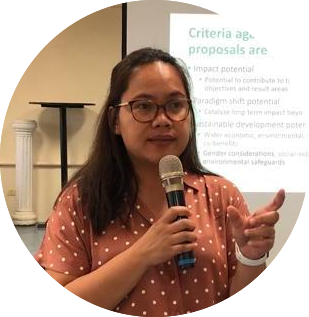Climate change is one of the world’s most pressing challenges today, threatening people’s health and safety, homes, livelihoods, infrastructure and natural ecosystems. Many of those who are most vulnerable to the impacts of climate change are found in developing countries – often the countries of heritage of many diaspora members around the world – which in recent years have experienced countless human fatalities and direct economic losses as a result of extreme weather events.
Guided by Sustainable Development Goal (SDG) 13: Climate Action, there is growing effort throughout the global community to mobilise a wide range of resources – natural, human and financial – and direct them towards effective solutions to climate change and to promote green growth. Diaspora communities around the world are taking action against climate change and promoting greener growth, both in the form of short-term emergency response and longer-term climate change adaptation and/or mitigation.
This page is based on the “Learning by doing” dossier in which we explore the different roles that diasporas play and reflect on opportunities for countries of residence and heritage to strengthen their policy frameworks to accommodate support from the diaspora.
Read on for a précis, or download the publication for the complete reflection.

Role
Features
Technical experts
- Diaspora experts possess specialised knowledge in areas that are pivotal in the green economy and can support designing localised solutions due to their understanding of the local context, culture, and challenges.
Emergency responders
- Diaspora communities offer crucial support during times of environmental crises in their countries of heritage and mobilise financial aid, relief goods and volunteers, demonstrating the power of transnational connections and solidarity.
Funders
In the context of green growth, diaspora communities playing the role of funders contribute to projects that promote climate resilience, adaptation, and mitigation measures. Such contributions are made altruistically, with no expectation of a return on the contribution.
Investors
The transnational knowledge of diaspora allows them to more easily identify and access investment opportunities in relevant sectors, and there are initiatives seeking to leverage this potential, amongst a plethora of diaspora investment initiatives, some specifically on climate adaptation and mitigation.
Innovators
With their know-how between countries of residence and heritage, access to tools, platforms and networks and awareness of local challenges, diaspora can act as innovators for green business ideas and localised adaptation strategies.
Partnership facilitators
Diaspora’s linguistic and cultural fluency, emotional and cultural connections and personal drive can help facilitate multisectoral partnerships and access to expertise that accelerate green initiatives and overcome legal and bureaucratic gaps.
Awareness raisers
As bridge-builders, diaspora play a fundamental role in green advocacy by lobbying for projects, policies, and activities, allowing them to raise awareness about the various roles they can play in climate action and environmental sustainability.
Mentors
Leveraging their international mindset and intercultural skills, diaspora help develop educational curricula, deliver trainings and workshops, and actively engage with fellow nationals in their countries of heritage to mentor them in the development of environmental initiatives.
In the first phase of EUDiF, three actions leveraged expertise from the diaspora to support climate action and environmental sustainability in Ethiopia, Mexico and the Philippines. Diaspora professionals were recruited to play one of the roles we explored above – that of technical experts – and transfer knowledge in their area of professional expertise. In addition to being technical experts as per their contracts, they also performed additional “bonus” roles during the action, going above and beyond the expectations of a short-term intervention and demonstrating the added value of working with diaspora on development projects.
The potential for diaspora engagement in climate action and green transition is starting to be recognised, but the climate emergency is affecting communities all over the world at a rapid pace. While EUDiF’s actions are typically small-scale and short-term, they are designed to be sustainable, and have also allowed for reflection on future opportunities to scale up diaspora engagement for climate action and green growth. Based on our actions and wider research and dialogue, it is clear that the ecosystem needs to do the following to maximise the potential of diaspora engagement for climate action:
There are many opportunities for diaspora to contribute to climate action and green growth, but this is not yet common knowledge. It is important to raise awareness about the different roles diaspora can play in feasible, effective and impactful diaspora-led environmental projects.
It is important to provide a space for actors to connect and discuss concrete ways to collaborate and share practices. This involves identifying gaps in technical capacity, thematic knowledge, and skills needed to implement diaspora-led projects on climate change and environmental sustainability.
Access to sustainable funding would raise the profile of the work of the diaspora, as well as allow them to go beyond pro-bono engagement and volunteerism. Funding opportunities must be coupled with capacity development to identify, apply for and manage funds effectively,
While there are many opportunities for diaspora to contribute, for instance through humanitarian assistance, remittances, green investments, and skills transfer, governments are yet to develop the enabling environment to unlock the full potential of diaspora contributions for climate action. Countries of both residence and heritage ought to explicitly recognise the roles that diaspora communities play in climate action and green growth, as well as to set up concrete mechanisms to act on the opportunities.